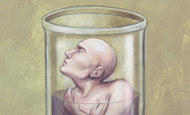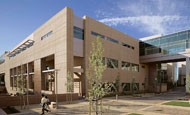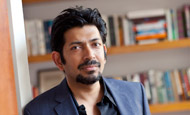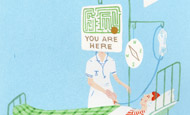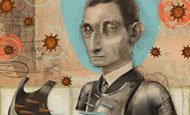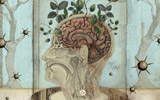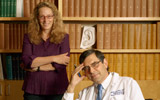
Special Report
Cancer's next stage
Let's not blow it
FALL 2011
‘I wonder if we’ve now entered a mode where $100,000 per year is an acceptable price for a cancer drug.’
BACK ISSUES
Online versions of the magazine from 1999 to present are still accessible. BACK ISSUES »


Download Printable Issue (PDF)
Hard knocks
New research has shown that children's risk for learning and behavior problems and obesity rises in correlation to their level of trauma exposure, says the psychiatrist at the School of Medicine and Lucile Packard Children's Hospital who oversaw the study. MORE . . .
Autism redux
A new School of Medicine study of twins suggests that non-genetic factors play an unexpectedly large role in determining autism risk, turning upside down recent assumptions about the cause of this common, disabling developmental disorder. MORE . . .
Jittery bugs
If you were the size of a bacterium, the lining of a stomach would seem like a rugged, hilly landscape filled with acid-spewing geysers, says Manuel Amieva, MD, PhD, assistant professor of pediatrics and of microbiology and immunology. MORE . . .
Sleep interrupted
Getting roused from a good snooze is not only bad for your mood, it could be bad for your memory, according to a new study in mice. MORE . . .
New digs
Stanford University Medical Center has begun laying the groundwork for its much-anticipated, $3 billion renewal project, which will bring new state-of-the-art patient care and research facilities to the community. MORE . . .
Letter from the dean
Clinical trials and cancer care
THE BACKSTORY
High-dose drama

